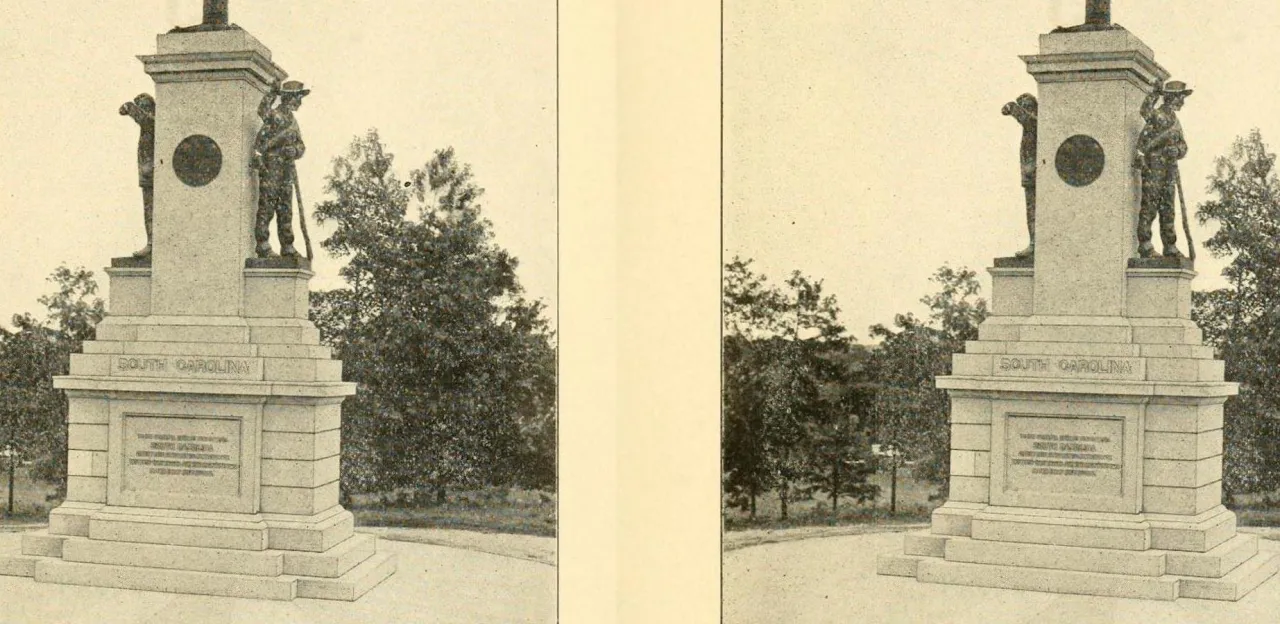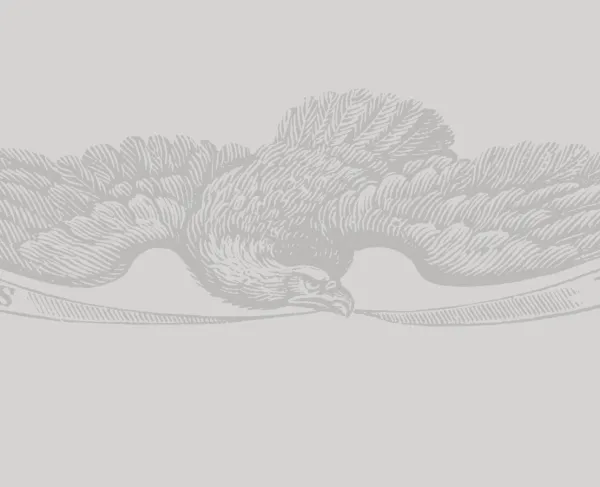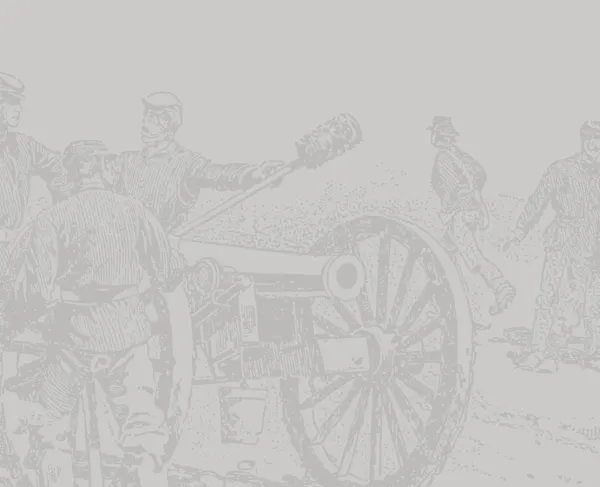Opening Speech for the Dedication of the South Carolina Monument on the Chickamauga Battlefield

Opening dedication address of Governor of South Carolina, Miles Benjamin McSweeney:
Fellow-Countrymen: — More than a generation has passed since the day of carnage which made this spot historic, when foeman met foeman worthy of his steel in bloody contest. It was not a conflict between hired soldiers but of men equal in courage and of the same great race who were contending (9) for principles they believed to be right. The heroism and the fortitude displayed by the Southern soldier in this conflict has never been surpassed in the history of the world. He considered that he was contending for the principle upon which our government was founded and he went into the conflict as a patriotic duty, and duty was his watchword from Manassas to Appomattox. On no other hypothesis can you explain the privation and the suffering which he so cheerfully and readily endured.
This spirit of patriotism prevailed not only among the men of the South, but the women, like the Spartan mothers of old, sent their sons and loved ones to the front with a cheerfulness born of a patriotism that will make any people great. From the first gun at Fort Sumter until arms were stacked at Appomattox they endured hardships and privations with a fortitude rarely equalled [sic] and never excelled.
And when the Confederate soldier stacked his arms and furled forever the flag which he had followed through victory and defeat and turned his face homeward, shattered and worn, there were no vain regrets for the part he had played in the great drama of war, but with a cheerfulness unparalleled and a spirit undaunted he began anew the battle of life and the work of rebuilding his lost fortunes and today there is no one more ready or more willing to respond to the defense of our common country than the Confederate soldier. This was demonstrated in our last war with Spain when Joe Wheeler saved the day at Satiago [sic] and young Bagley laid his life upon the altar of his country. It is meet and right that we should perpetuate his memory in bronze and stone, but better still that it should be embalmed in the hearts and lives of those who are to come after us. This we can do and at the same time accept the result of the combat and still be true to the flag.
This is a proud day for South Carolina. This beautiful park has been purchased by the general government, and each State having troops engaged in this great battle has been asked to nark the position of its troops. Many of the States have already acted, and nearly a half million dollars have been expended by sixteen States for this purpose. Though tardy we have at last done our duty and today we come to dedicate this monument to the memory of the brave South Carolinians who fought and fell on this historic spot.
In 1893 the General Assembly of South Carolina appointed a commission to locate the position of her troops and in 1894 a commission to select suitable monuments, but it was not until (10) 1900 that the means were provided to complete the work. At that session of the Legislature an appropriation of $10,000 was made to erect suitable monuments, and the Governor was authorized to appoint a commission of three members, and they, with the Governor and the Adjutant General, were to have charge of the erection of the markers and the monument. By authority of that act I appointed as the other members of this commission Gen. C. I. Walker, of Charleston; Col. J. Harvey Wilson, of Sumter, and Capt. C. K. Henderson, of Aiken.
I am proud that I have the opportunity of taking part in these ceremonies and I rejoice at the consummation to which this day brings us in the completion and dedication of this monument. It is a glad day for all true sons of the Palmetto State.
Deep gloom had settled upon the Confederate banner in July, 1863, for then Vicksburg had fallen and the terrible battle of Gyttysburg [sic] had been fought. The.se disasters were not enough, but Confederate energy seemed paralyzed so far as the army under General Bragg was concerned, for the United States forces under Rosecrans had by force of number and superb military equipment driven the Army of the West through Chattanooga into north Georgia along the banks of the Chickamauga. The idea was> seized upon by the military authorities at Richmond to reinforce the depleted columns under Bragg by two divisions of Longstreet's corps to be commanded by that old war horse, Gen. J. B Hood. So hurried were the movements of the reinforcing columns that Longstreet could not have his artillery to reach the battlefield of Chickamauga. but the two divisions under McLaws and Hood were assigned to the command of the left wing of General Bragg's army.
On the day of the 20th of September, 1863, two giants in warfare grappled from right to left from sunrise to sunset. The Federal left was commanded by that superb soldier. Gen. George H. Thomas, and to dislodge that force General Bragg ordered every effort to be made, but Thomas held his ground too firmly to yield the field there. The old war horse, Long- street, pressed the Federal right and centre with his troops and some of the Federals under Gordon Granger and Wood, and by the use of twelve or twenty pieces of artillery at an angle the left wing of the Federal army under Thomas gave way This left the entire field in the possession of the Confederates.
It is a glorious reflection that the valor of South Carolina (11) troops under Kershaw on the left and Manigault on the right contributed so largely to this magnificent victory, and it is a matter of history that the South Carolina troops, through Kershaw's brigade, made the farthest advance on Snodgrass Hill.
There was not a bloodier fought battle in the whole war, when you take into consideration the number of troops engaged and the time of actual combat. Official reports show that the killed, wounded and missing were over thirty-three per cent, of all the troops actually engaged. On the Union side the loss in this battle of a number of regiments was fifty per cent, of the men engaged and the same loss was sustained by the troops on the other side and General Longstreet in his history says that his command lost in two hours nearly forty four per cent, of its strength. "The charge of the light brigade at Balaklava has been made famous in song and history, yet there were thirty Union regiments that each lost ten per cent, more men at Chickamauga and many Confederate regiments whose mortality exceeded this."
On the night of this day it was that General Breckinridge in answering the call of the South Carolina troops, said: "I will not say to who n the credit is due, but this Is the first occasion upon which I have been allowed to sleep with my troops on a battlefield which has been fairly and thoroughly won." It was ot [sic] this battle also that Charles A. Dana, Assistant Secretary of War, on the field himself, sent to his government this dispatch: "We have this day met a second Bull Run."
It is, my countrymen, to such men as those who bared their breasts on many a battlefield to the belching fire and lead of the enemy that we come to dedicate this monument. It is a privilege which we enjoy to have such a heritage as they have left us.
Click here for the full text of ceremonies.





